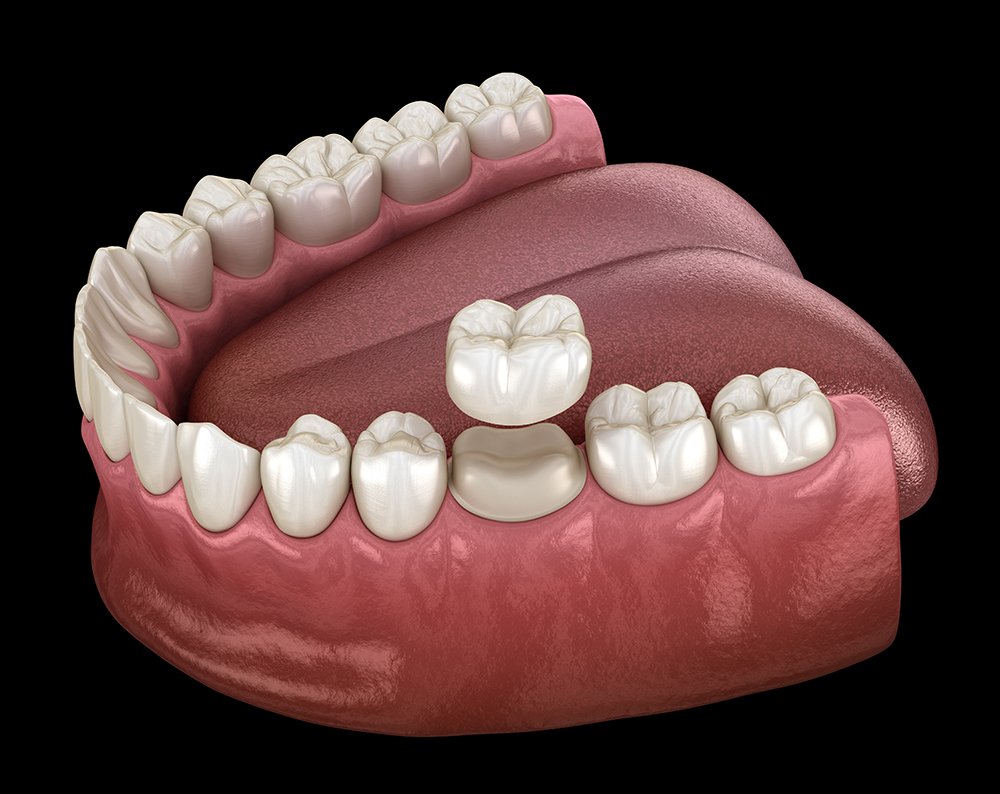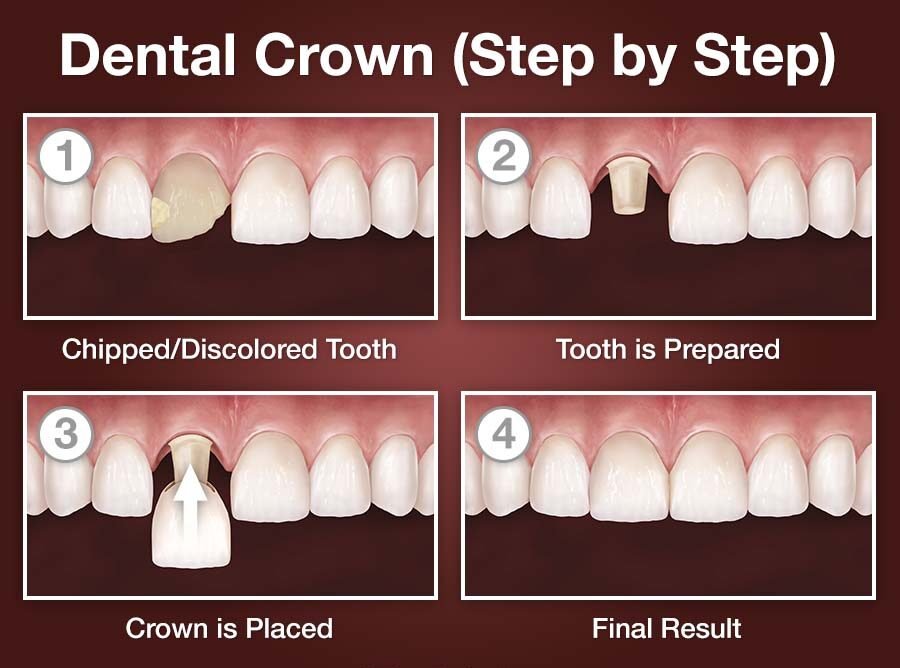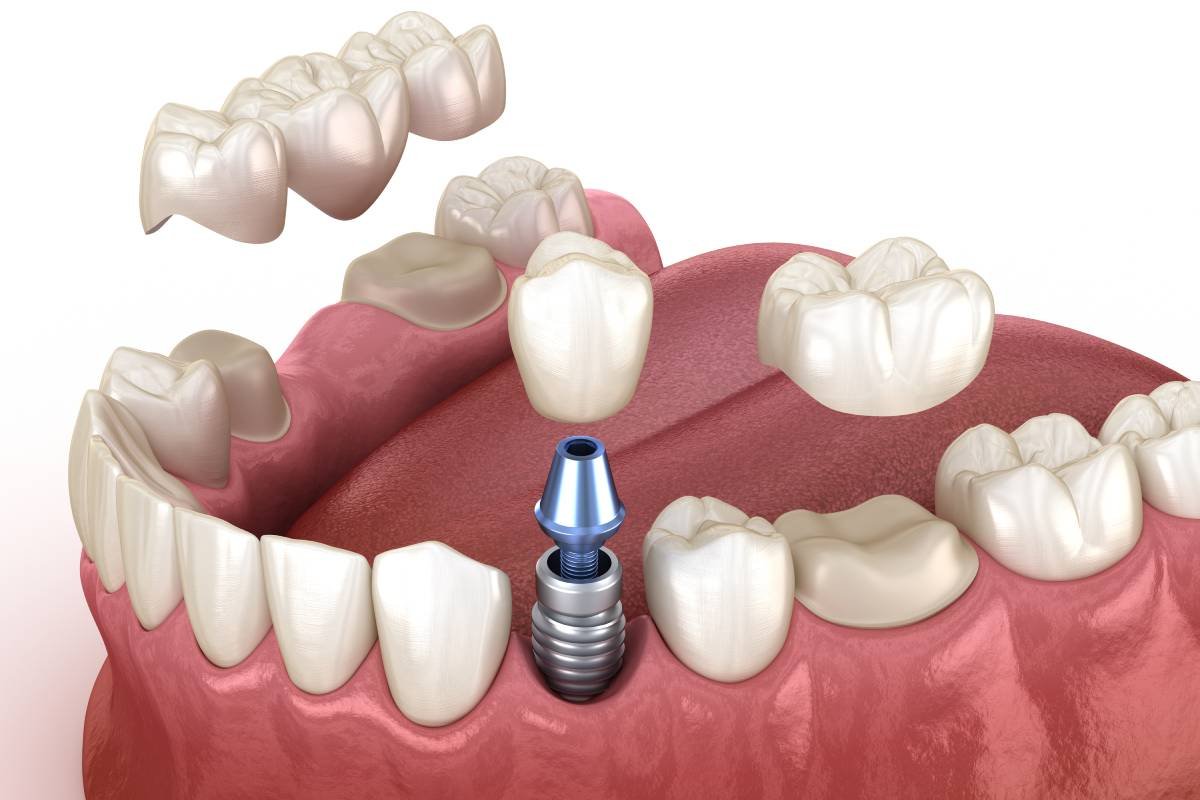
Dental Crown:
A dental crown, also known as a tooth crown or dental cap, is a custom-made restoration that covers the entire visible portion of a tooth above the gumline. Crowns are commonly used to restore the shape, size, strength, and appearance of a damaged or weakened tooth, providing protection and support while also improving its aesthetic appeal.
Procedure:
- Preparation: The first step in getting a dental crown is preparing the affected tooth. This involves removing a small amount of tooth structure to make room for the crown. If the tooth is severely damaged or decayed, the dentist may also build up the core of the tooth to provide additional support for the crown.
- Impressions: Once the tooth is prepared, the dentist will take impressions of the tooth and surrounding teeth to create a custom-made crown that fits perfectly in your mouth. These impressions are sent to a dental laboratory, where skilled technicians fabricate the crown to match the size, shape, and color of your natural teeth.
- Temporary Crown: While you wait for your permanent crown to be made, the dentist may place a temporary crown over the prepared tooth to protect it and maintain its function and appearance. Temporary crowns are usually made of acrylic or stainless steel and are not as durable as permanent crowns.
- Placement: Once your permanent crown is ready, usually within a couple of weeks, you’ll return to the dentist’s office to have it placed. The dentist will remove the temporary crown (if one was placed) and carefully fit the permanent crown onto the prepared tooth. They will check the fit, shape, and color of the crown to ensure that it looks and feels natural and comfortable.
- Bonding: Once the fit is confirmed, the permanent crown is permanently bonded to the tooth using dental cement. The dentist will make any final adjustments to ensure that the crown fits properly and does not interfere with your bite or oral function.
Benefits of Dental Crowns:
- Restoration of Function: Dental crowns restore the function of a damaged or weakened tooth, allowing you to bite, chew, and speak with confidence.
- Protection: Crowns provide a protective barrier that shields the underlying tooth from further damage, decay, and infection.
- Aesthetic Improvement: Crowns are designed to match the shape, size, and color of your natural teeth, enhancing the appearance of your smile.
- Longevity: With proper care and maintenance, dental crowns can last for many years, providing durable and reliable tooth restoration.
Whether you need a crown to repair a cracked tooth, strengthen a weakened tooth, or improve the appearance of a misshapen tooth, dental crowns offer a versatile and effective solution for restoring your smile and oral health. If you’re considering a dental crown, consult with your dentist to discuss your options and determine the best treatment plan for your needs.



